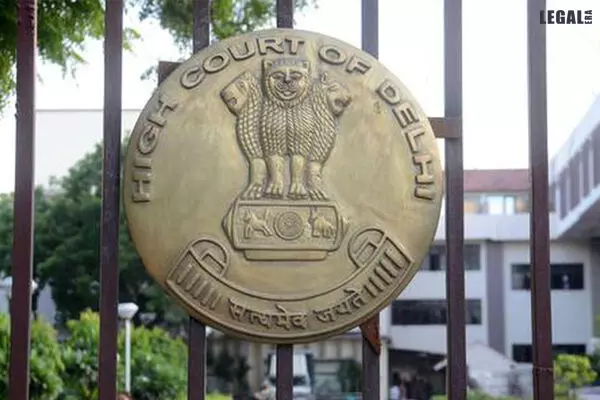- Home
- News
- Articles+
- Aerospace
- Agriculture
- Alternate Dispute Resolution
- Banking and Finance
- Bankruptcy
- Book Review
- Bribery & Corruption
- Commercial Litigation
- Competition Law
- Conference Reports
- Consumer Products
- Contract
- Corporate Governance
- Corporate Law
- Covid-19
- Cryptocurrency
- Cybersecurity
- Data Protection
- Defence
- Digital Economy
- E-commerce
- Employment Law
- Energy and Natural Resources
- Entertainment and Sports Law
- Environmental Law
- FDI
- Food and Beverage
- Health Care
- IBC Diaries
- Insurance Law
- Intellectual Property
- International Law
- Know the Law
- Labour Laws
- Litigation
- Litigation Funding
- Manufacturing
- Mergers & Acquisitions
- NFTs
- Privacy
- Private Equity
- Project Finance
- Real Estate
- Risk and Compliance
- Technology Media and Telecom
- Tributes
- Zoom In
- Take On Board
- In Focus
- Law & Policy and Regulation
- IP & Tech Era
- Viewpoint
- Arbitration & Mediation
- Tax
- Student Corner
- AI
- ESG
- Gaming
- Inclusion & Diversity
- Law Firms
- In-House
- Rankings
- E-Magazine
- Legal Era TV
- Events
- News
- Articles
- Aerospace
- Agriculture
- Alternate Dispute Resolution
- Banking and Finance
- Bankruptcy
- Book Review
- Bribery & Corruption
- Commercial Litigation
- Competition Law
- Conference Reports
- Consumer Products
- Contract
- Corporate Governance
- Corporate Law
- Covid-19
- Cryptocurrency
- Cybersecurity
- Data Protection
- Defence
- Digital Economy
- E-commerce
- Employment Law
- Energy and Natural Resources
- Entertainment and Sports Law
- Environmental Law
- FDI
- Food and Beverage
- Health Care
- IBC Diaries
- Insurance Law
- Intellectual Property
- International Law
- Know the Law
- Labour Laws
- Litigation
- Litigation Funding
- Manufacturing
- Mergers & Acquisitions
- NFTs
- Privacy
- Private Equity
- Project Finance
- Real Estate
- Risk and Compliance
- Technology Media and Telecom
- Tributes
- Zoom In
- Take On Board
- In Focus
- Law & Policy and Regulation
- IP & Tech Era
- Viewpoint
- Arbitration & Mediation
- Tax
- Student Corner
- AI
- ESG
- Gaming
- Inclusion & Diversity
- Law Firms
- In-House
- Rankings
- E-Magazine
- Legal Era TV
- Events
Delhi High Court rules on arbitration clause by entities for 'excepted' matters to exclude a 'specific' issue

Delhi High Court rules on arbitration clause by entities for 'excepted' matters to exclude a 'specific' issue
The case is listed for hearing on 27 February 2023
The Delhi High Court has stated that parties can provide an arbitration clause for an 'excepted' matter to exclude a 'specific' matter from the purview.
The bench of Justice Amit Bansal was dealing with the defendant's application filed under the Arbitration and Conciliation (A&C) Act, 1996 seeking that parties be referred to arbitration and the complaint be rejected.
The plaintiff and the defendant entered into a Sole Distribution Agreement. The defendant placed a purchase order on the plaintiff to supply certain goods, which were supplied under the purchase order, raising three invoices.
But the defendant failed to make a full payment related to the invoices. Thus, the plaintiff filed the suit under the provisions of Order XXXVII of the CPC, seeking the recovery of USD3,08,203.45, along with pendent lite and future interest.
Thus, the issue before the court was whether the suit was maintainable.
The bench relied upon the Indian Oil Corporation Limited vs NCC Limited case wherein the court noted, "The parties can provide in an arbitration clause for 'excepted' matters, where a 'specific' matter can be excluded from the purview. The arbitral tribunal would have no jurisdiction to decide the same. The issue of non-arbitrability of the dispute can be considered by the court at the stage of deciding an application if the facts are very clear and glaring and in view of the specific clauses of the agreement."
The Delhi High Court further relied on the Sancorp Confectionary vs Gumlink A/S case wherein the court considered an application filed by the defendant under the A&C Act. The court had held that it needed to examine and record prima facie findings on whether there was an arbitration clause and whether the disputes referred to arbitration were covered by an arbitration agreement.
Thus, the bench stated, "It was the intention of the parties that if a dispute relating to termination or grounds of termination (including expiration) arises, the same would be referred to arbitration. The word 'including' in the clause clearly indicates that the subsequent phrase, 'potential claims for indemnification or compensation thereof' is used in relation to the termination or expiration of the agreement and not in relation to any other dispute. All other disputes will be 'excepted' matters and will not be covered under the arbitration clause.
The court further held, "There is no merit in the submission of the defendant that the word 'compensation' must be construed independent of the earlier part of the clause. The amount sought to be recovered in the plaint does not relate to any indemnification or compensation sought by the plaintiff from the defendant. It is solely based on the unpaid invoices."
Justice Bansal stated that the phrase 'including but not limited to injunctive relief measures' clearly conveyed that the suit need not be limited to injunctive relief. The scope for recovery and that for injunctive relief was entirely different. The use of the word 'or' clearly shows that in addition to the proceedings for injunctive relief, the plaintiff could also file suits for recovery of monies owed by the defendant.



